Shubhashis Gangopadhyay
The increasing support for Anna Hazare is telling. Even those who are critical of his methods support his cause. I am pretty sure that this feeling about corruption has little to do with whether one is party to it.
Most people I know who pay bribes claim they do so to avoid harassment by one official or another. They look forward to the day when they can carry on with their daily grind, receiving from the government whatever they are entitled to and have voted for, without having to grease anyone's palms.
This is understandable - very few people who do illegal things do so because they love doing illegal things. People are corrupt in India because the material life resulting from corruption an illegal act is better than a corruption-free existence.
There is a problem with not accepting this position, for then we are claiming that there is something rotten in the Indian gene.
...
What is the perfect cure for corruption?
There is another common trait I see among the people who hate corruption. They all believe that the "establishment" is corrupt.
They, therefore, want to "establish" an institution filled with good people who would investigate corrupt activities and punish those involved in them.
First, we are confident of finding good people who will not be swayed by the gains to be made from being corrupt. Second, we are also confident that as long as civil society is watching, these good people can be chosen by the very same individuals and group who are going to be investigated.
The question that remains unanswered is: have we, as a society, thought about what we will do if some members of the new institution are also corrupt? After all, we did build a vigilance commission and we do have a vigilance officer in each government department.
How come we are still on the streets fighting against corruption at lower levels of government?
...
What is the perfect cure for corruption?
If (some) people are corrupt because they find it profitable, then there are two ways to stop corruption. One is the surety with which corrupt actors get caught and are then punished. This makes corruption very costly, if caught.
We need to ensure that the probability of catching corruption is high and the path to punishment is easy and smooth. This is what the Lok Pal Bill, if enacted, is trying to do.
The other way to stop corruption is to remove possibilities of making profits through corruption.
Both need to be simultaneously implemented; otherwise, resourceful as we are, if there are enough ways to profit from corruption, we will find out ways to avoid, or corrupt, the members of investigating institutions.
...
What is the perfect cure for corruption?
Unfortunately, as we try to intensify the policing on corruption highways, we keep adding newer highways of corruption all the time. Policing is expensive; if these highways are not built, we will save on the policing costs.
More importantly, the investigating agencies will not be overworked and become more efficient in catching those who are corrupt.
Let me introduce a new corruption highway that we are in the process of constructing, overshadowed by all the Lok Pal activities.
The land acquisition Bill in Parliament has proposed that owners of lands acquired in rural areas will get six times their current market value and the owners of urban lands will get two times their current market value.
...
Title:What is the perfect cure for corruption?
There are too many problems with this clause and all these problems together make it easier for corrupt activities to develop.
There are two immediate problems with the land acquisition Bill. The fundamental one is the power being given to the government to act as an intermediary in the transfer of land owned by a set of private parties to another set of private parties.
Based on this fundamental problem of letting in the government in what should be a market-based activity, the compensation principle generates avenues of corruption. Let me explain how.
Suppose that a particular modification of the use of rural land will increase the land value by four times; a developer is willing to pay 100 per unit of the land, while the last recorded sale of a unit of this land was 25.
...
What is the perfect cure for corruption?
An honest public servant will not acquire this land. She has the responsibility of not doling out money from one group to another; so if the government cannot pass off the land acquired at six times the current market price to someone who is willing to pay that amount, she should not go ahead with this acquisition.
But I am a resourceful Indian (amazingly, when it comes to corruption it does not matter in which ivory tower one resides), so let me outline a process by which I can make a gain from this system.
I need to record a sale at 16 per unit. I sell a part of my land at 16 and lose 9 per unit. Now the developer's 100 is an acceptable price for the public official.
I sell each of my land units at 100, make a profit of 75, and can easily recoup my 9 per unit loss.
...
What is the perfect cure for corruption?
Observe that I can make a similar gain if the market price was 10 and the developer was willing to pay 100. For then, instead of 60, which is what the government should pay me, I need to register a sale at 16 so that the government pays me (close to) 100!
Of course, the public official is also smart and resourceful; she knows precisely what I am doing and demands a share of my profit and we have something which is called corruption!
Are we thinking about these things while we search for good Indians?
The author is Research Director, India Development Foundation.

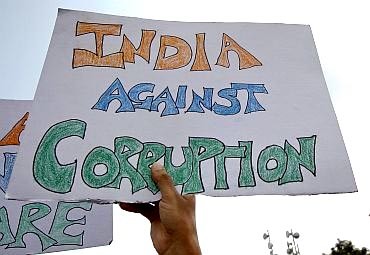
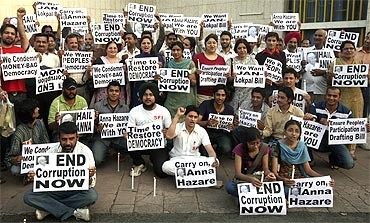
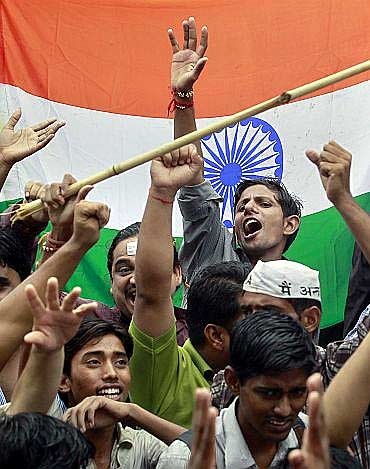
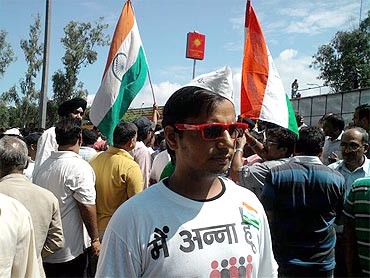

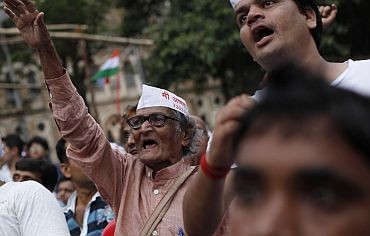


article